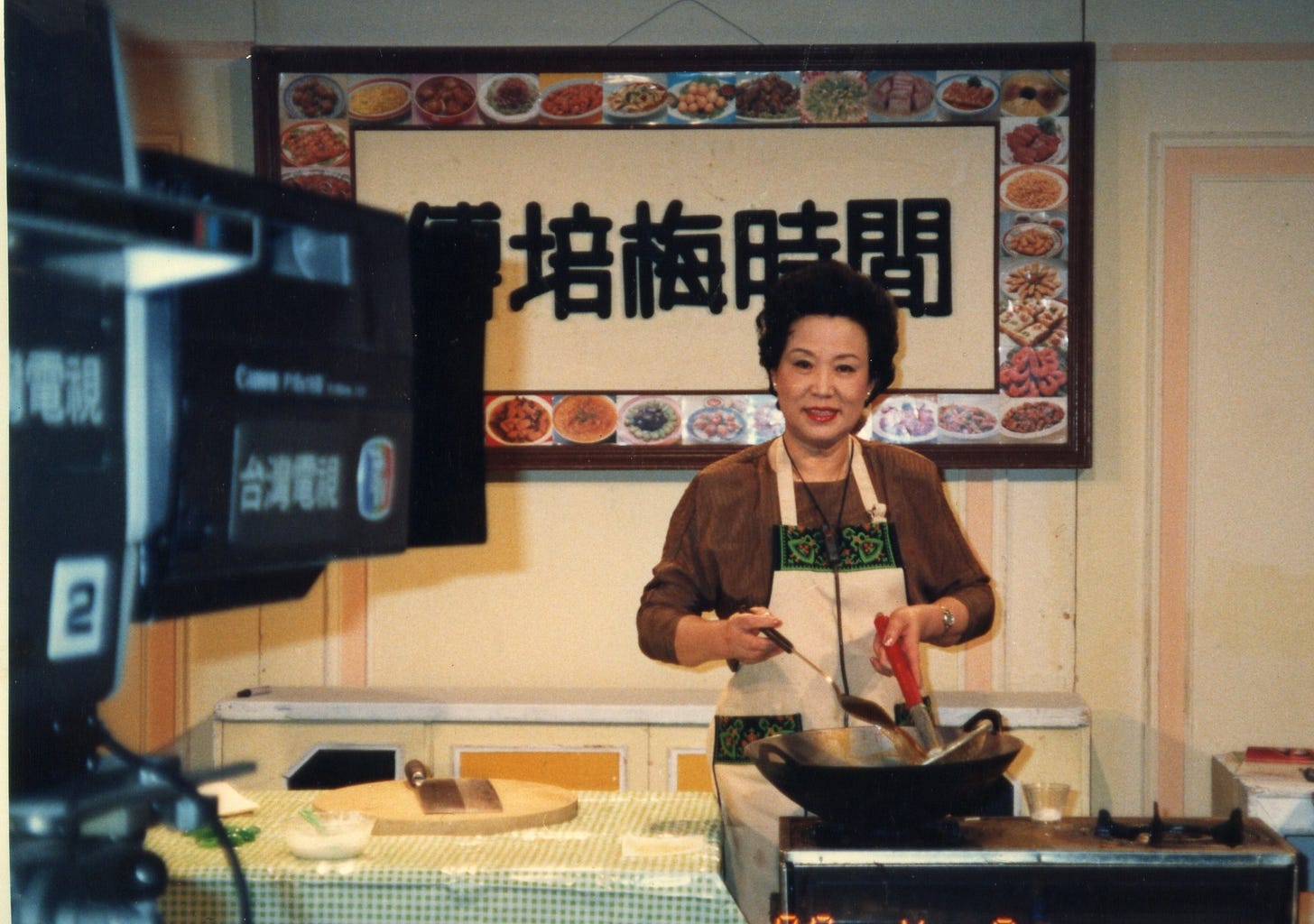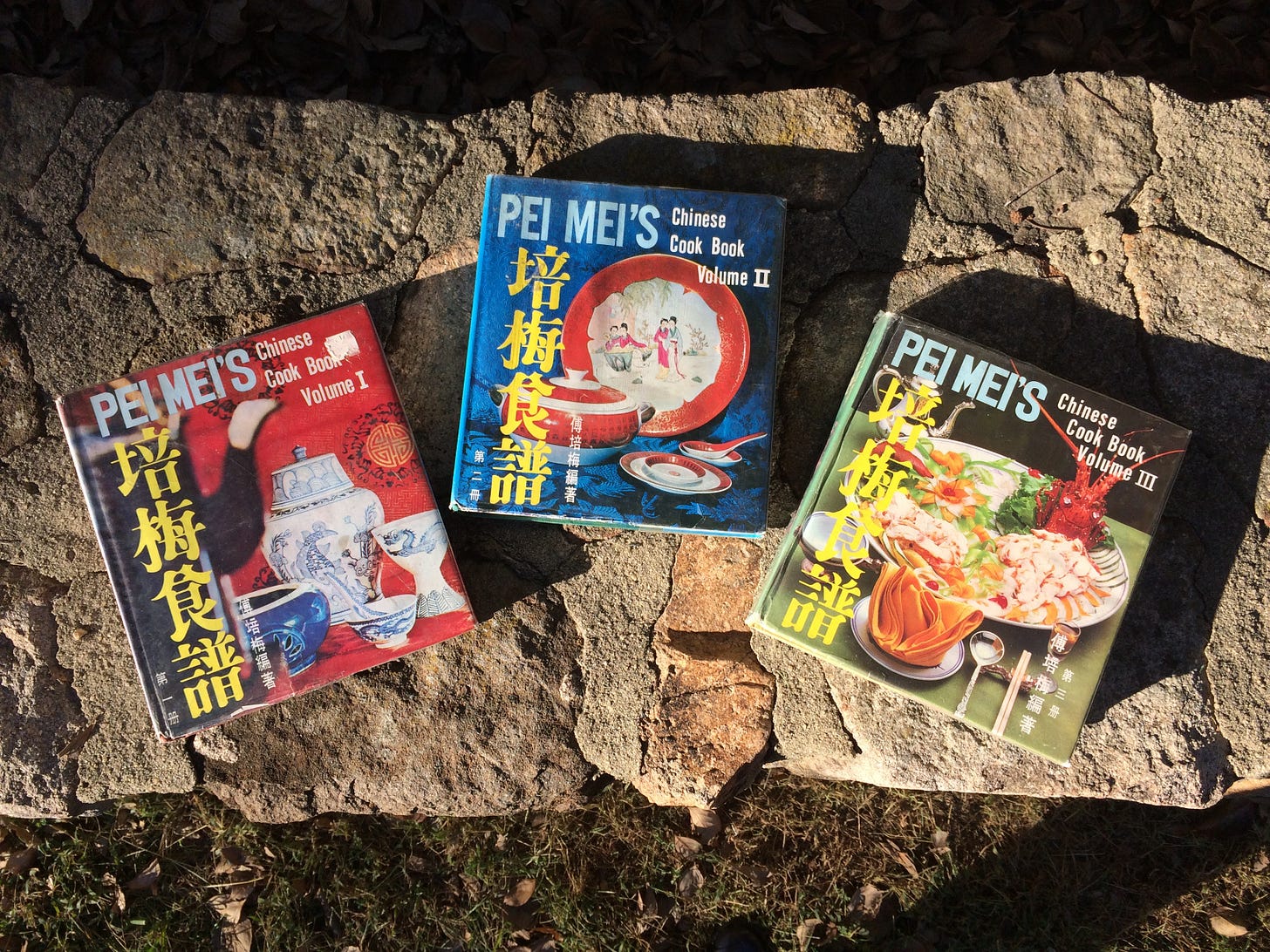The rise of the Chinese post-war housewife
An excerpt from 'Modern Chinese Foodways'
This week, we’re taking a break from BODY to share a short piece by Michelle T. King highlighting a chapter of her work in Modern Chinese Foodways, a new collection edited by Jia-Chen Fu, Michelle T. King and Jakob A. Klein (on sale March 4, 2025 from the MIT Press).
Modern Chinese Foodways explores the multifaceted experiences of Chinese culinary modernity both within and outside of mainland China from the mid-19th century to the present. It argues that Chinese food and foodways are very much modern — despite the many voices that insist on emphasizing its ancient roots — in ways that both recall the experiences of other cultures, as well as in ways unique to China's own historical trajectory. In this way, the volume demonstrates the significance of modern Chinese foodways to the phenomenon of culinary modernity writ large, which is still largely shaped by Euro-American perspectives and priorities.
Among other changes in the Chinese culinary sphere, the editor highlights the creation of new culinary identities based on gender, ethnicity, and nation. Michelle’s chapter, “Domestic Cookbooks and the Emergence of the Female Culinary Authority in Twentieth-Century China”, investigates how gender norms around Chinese food evolved from positioning gastronomy exclusively as the domain of men to a field in the remit of housewives across the nation. (Writer Alison Wong explored similar dynamics of whose food labour is deemed gastronomical in her piece for our CITY issue, Happy Family.) Michelle unpacks this history in more detail below.
Modern Chinese Foodways is available now for pre-order.
By Michelle T. King
For today’s home cooks, imagining a world without an astounding selection of food media is nearly impossible, from the Food Network to on-demand programming, to blogs, vlogs and TikToks, to every variety of cookbook imaginable for every type of cuisine. With regard to Chinese food alone, which is my own area of interest, there are at least a dozen websites that do a marvellous job teaching users how to cook (two of my favourites include the Woks of Life and Made with Lau). But we often forget how very recently this proliferation of food media emerged, particularly in the realm of Chinese cuisine — and how it heralded a new role for women as public culinary authorities.
In the 1950s and 60s, almost a dozen Chinese cookbooks appeared in Chinese and English, in Taiwan and the United States, titled with the names of their female authors, such as the Yuanshan Cookbook (1954), The Joyce Chen Cookbook (1962), or the Pei Mei Cook Book (1969). In today’s culinary marketplace, none of this self-branding seems remarkable, but when placed within its historical context, this mid-century wave of female-authored Chinese cookbooks represents a monumental shift in the gendered conventions of Chinese culinary authority. I explore the historical background of these cookbooks in a chapter published in a new edited volume, Modern Chinese Foodways, co-edited by Jia-chen Fu, Jakob A. Klein, and myself (MIT Press, 2025).
For millennia, Chinese cuisine had been an almost exclusively male realm — at least in print. Within the traditional hierarchy of Chinese food writing, the ideal pairing consisted of a male gourmand and his male cook, with the exquisite tastebuds of the former guiding the hands of the latter. Chinese women, of course, had been involved in food preparation all along, but it wasn’t until the twentieth century, for the most part, that women were addressed as either the authors or the audience of Chinese food writing. These Chinese cookbooks of the 1950s and 60s suggest a totally different culinary pairing, that of the expert female cooking instructor and her female students, who were housewives themselves. The rise of the modern Chinese cookbook, then, authored by and for Chinese women, also signals the emergence of the new figure of the postwar housewife, who was solely responsible for the physical and emotional well-being of her nuclear family.
The research contained in my chapter grew out of my interest in the extraordinary life and career of Fu Pei-mei (1931-2004), Taiwan’s pioneering food television celebrity and bilingual cookbook author, who also owned her own cooking school and traveled the world teaching people how to cook Chinese food. In 1971, the New York Times called Fu the “Julia Child of Chinese cooking”, but in Taiwan it would be more accurate to call Child the “Fu Pei-mei of French food”, since Fu has occupied that space as the touchstone against which all other culinary figures are measured.

I’ve been researching Fu Pei-mei’s career for the better part of a decade, and recently published a book about her called Chop Fry Watch Learn: Fu Pei-mei and the Making of Modern Chinese Food (W. W. Norton, 2024). In the chapter for our edited volume, I wanted to put Fu’s cookbooks into a broader perspective with other female cookbook authors of her generation. There has been little research published on either the contemporary history of Chinese cookbooks or the history of Chinese housewives, so my chapter was an attempt to address that gap.

The twentieth-century gendering of culinary authority is but one set of experiences of Chinese culinary modernity explored in our edited volume, Modern Chinese Foodways. In it, we identify some of the major processes by which Chinese food and foodways have become modern, with a focus on the period from the mid-nineteenth to the twenty-first centuries. We highlight four prominent areas of change: commodification of food production; the scientization of expertise and the development of new food technologies; the creation of new culinary identities based on gender, ethnicity, and nation; and the circuits of migration taking place since the nineteenth century. We insist that not only are Chinese foodways modern — not a given, in light of the many voices always insisting on their ancient roots — but also that in order to understand culinary modernity itself, we have to acknowledge and incorporate Chinese experiences, instead of defaulting solely to Euro-American models of development. The volume includes chapters from thirteen leading scholars, with editorial essays on the past and future of Chinese food studies. We’re excited to share this cutting-edge research.
Modern Chinese Foodways is available now for pre-order.
Michelle K. Ting is an Associate Professor of History at the University of North Carolina at Chapel Hill. You can find her on Instagram @michtking, at www.michelletking.com, or contact her directly at mtking@email.unc.edu.


